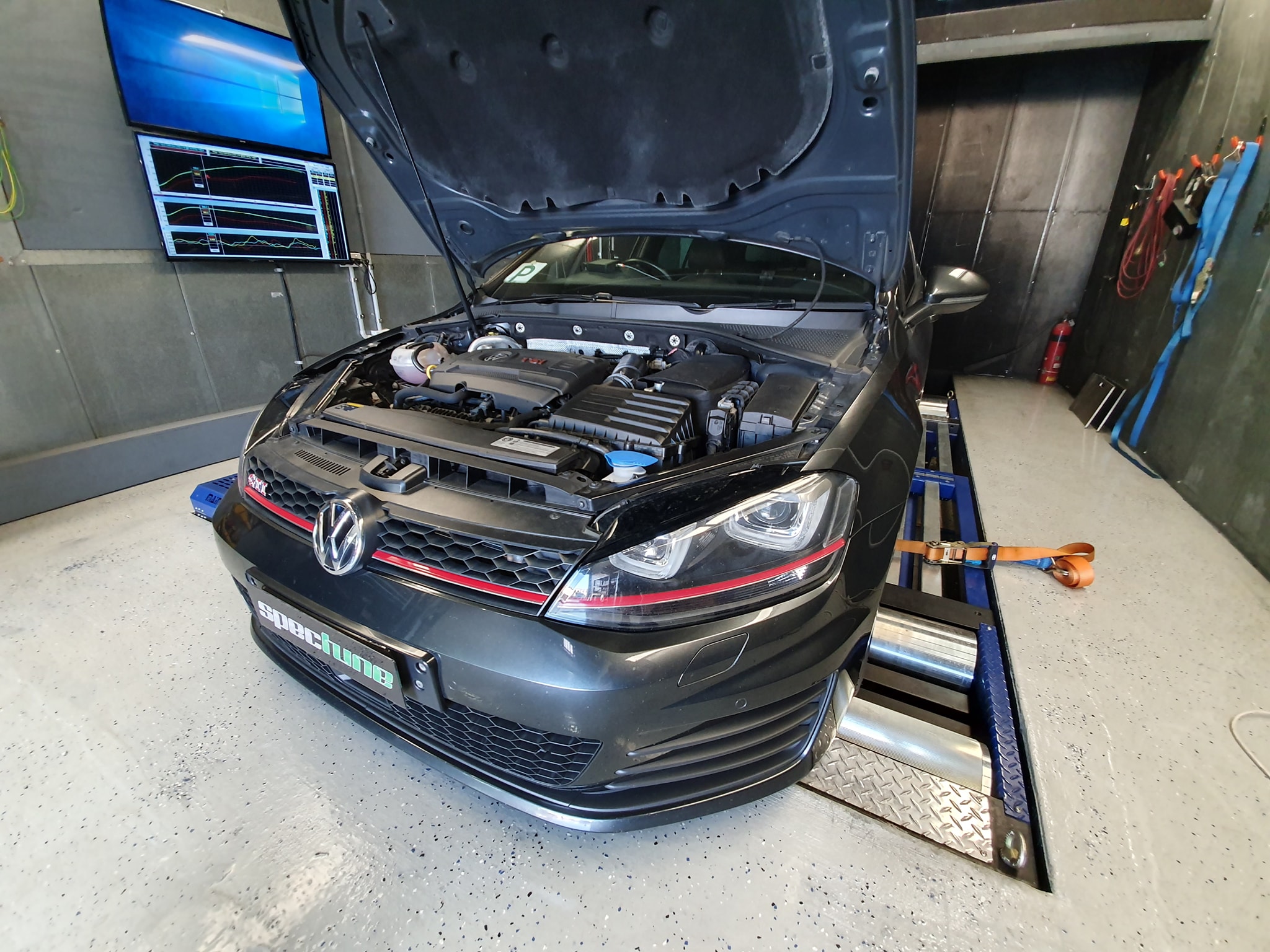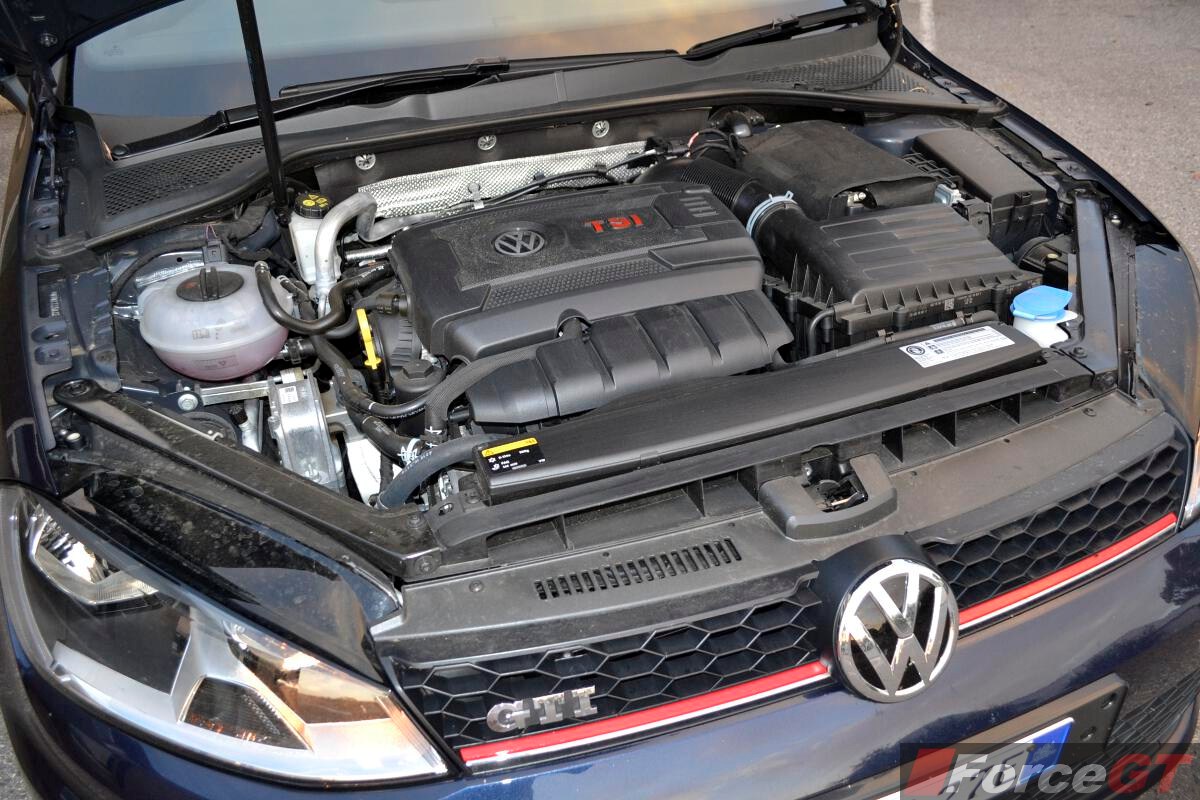Why the Golf 7 GTI Engine Stands Out in the World of Hot Hatches
Your Guide to the Golf 7 GTI Engine: Integrity and Upgrades
The Golf 7 GTI, outfitted with its 2.0-liter turbocharged inline-four engine, represents an equilibrium of performance and integrity that interest fanatics and daily chauffeurs alike. Understanding the elements that contribute to its reliability, together with potential problems and their options, is vital for taking full advantage of the driving experience. Checking out numerous performance upgrades can substantially enhance both power and efficiency. The question stays: what details upgrades can transform your GTI right into a really extraordinary vehicle while ensuring its longevity?
Overview of the Golf 7 GTI Engine
The heart of the Golf 7 GTI is its 2.0-liter TSI engine, a turbocharged four-cylinder that supplies an excellent blend of power and performance. This engine produces a robust 220 horsepower and 258 lb-ft of torque, allowing the automobile to accelerate from 0 to 60 miles per hour in simply 5.6 secs, showcasing its sporty personality. The turbocharged style not only enhances performance but likewise optimizes fuel efficiency, making it a practical choice for everyday driving.
Integrating sophisticated technology, the engine features straight fuel injection, which improves combustion efficiency and lowers emissions. In addition, the Golf 7 GTI is outfitted with either a six-speed handbook or a six-speed DSG dual-clutch automated transmission, offering chauffeurs with the flexibility to choose their chosen driving design. The vehicle's front-wheel-drive format, combined with a well-tuned suspension, guarantees dexterous handling and a receptive driving experience.
Engine Reliability Aspects
Dependability is an essential facet of any type of performance-oriented lorry, and the Golf 7 GTI's engine is no exception. Numerous variables add to the general reliability of this very related to powerplant, which is necessary for both day-to-day driving and perky performance.
Firstly, the Golf 7 GTI is furnished with a durable 2.0-liter turbocharged inline-four engine, known for its efficient layout and solid design. This engine features a built steel crankshaft and light weight aluminum engine block, which supply exceptional toughness and durability while lowering weight.
Second of all, normal maintenance plays a crucial role in boosting engine dependability. Following the supplier's suggested solution intervals, utilizing top quality lubes, and changing crucial elements such as spark plugs and filters can substantially expand engine life.
Moreover, the top quality of fuel made use of can additionally influence integrity. Premium gas is advised to guarantee optimal efficiency and reduce the threat of knocking or ignition.
Last but not least, the car's digital management system continuously monitors engine parameters, enabling for real-time modifications to enhance efficiency and performance while securing against possible concerns. Jointly, these variables highlight the Golf 7 GTI engine's online reputation for integrity among fanatics and daily vehicle drivers alike.
Common Concerns and Solutions
The Golf 7 GTI, while celebrated for its efficiency, is not without its challenges. Among the most frequently reported issues are engine oil usage and turbocharger failings, which can significantly influence car integrity. Recognizing these common issues and their options is vital for preserving optimum engine performance.

Engine Oil Usage
While many enthusiasts value the efficiency of the Golf 7 GTI, engine oil usage can become a significant problem. Owners might notice that their lorries need even more frequent oil top-ups than anticipated, usually credited to numerous factors integral in the engine's style and procedure.
One usual problem is the engine's direct gas injection system, which can result in boosted oil intake because of the burning process. Furthermore, making use of high-performance driving practices can exacerbate oil burn-off, particularly under hostile throttle problems. Drivers might also experience oil leakages from gaskets and seals, which can add to decreased oil levels.
To address oil usage, normal maintenance is essential. Routine oil modifications using high-grade synthetic oil can assist maintain ideal engine efficiency and longevity. Checking oil degrees and performing timely checks can stop potential problems before they escalate. If too much intake continues, it might be a good idea to get in touch with an expert technician to evaluate the engine for potential internal troubles, such as used piston rings or shutoff seals. Taking on these techniques can dramatically minimize problems relating to oil usage in the Golf 7 GTI, ensuring a much more trustworthy and enjoyable driving experience.
Turbocharger Failures
Turbocharger failures can substantially impact the performance of the Golf 7 GTI, leading to reduced power and effectiveness. Oil leaks usually stem from worn seals or damaged gaskets, which can lead to oil contamination and subsequent engine damage.
One more prevalent trouble is wastegate failure, which can cause overboost or underboost problems. This not just influences the vehicle's efficiency however can also cause major engine damage if left unattended. Updating to a much more robust wastegate can enhance dependability and performance.
Extreme shaft play shows wear in the turbocharger's bearings, which can result in a full turbo failure. Checking increase pressure and paying attention for unusual noises can help discover this problem early.
To avoid turbocharger failings, normal upkeep, including oil changes and air filter substitutes, is essential. Additionally, purchasing premium aftermarket parts may supply improved reliability and performance, ultimately improving the driving experience of the Golf 7 GTI.
Efficiency Upgrades to Think About
What performance upgrades can absolutely raise the driving experience of a Golf 7 GTI? To let loose the complete potential of this renowned warm hatch, numerous targeted modifications can improve power, handling, and general driving enjoyment.
Among the most reliable upgrades is a high-performance turbocharger. Changing the supply device with an aftermarket choice can substantially increase horsepower and torque, providing a more exciting acceleration experience. Matching this upgrade with a performance intercooler helps maintain optimal temperatures, ensuring constant power delivery.
Following, consider upgrading the exhaust system. A less limiting exhaust not just improves engine effectiveness however additionally creates a much more hostile noise that intensifies the car's sporty personality. Pairing this with a remapped ECU will certainly maximize gas distribution and ignition timing, additional boosting efficiency.
Suspension upgrades, such as adjustable coilovers, can improve dealing with by decreasing the car's facility of gravity and decreasing body roll. In addition, a set of high-performance tires will certainly enhance grip, web permitting sharper cornering and enhanced general stability.
With each other, these upgrades can change the Golf 7 GTI right into a much more dynamic and exhilarating driving equipment, making every trip a remarkable experience. golf 7 gti engine.
Advised Upkeep Practices
Maintaining the Golf 7 GTI engine needs interest to key techniques that make sure ideal performance and durability. Routine oil changes are crucial for engine health and wellness, while prompt timing belt substitute is critical to stop prospective failures. Applying these upkeep methods will certainly aid maintain your car running smoothly and effectively.
Regular Oil Adjustments
Normal oil adjustments are essential for the ideal performance and long life of the Golf 7 GTI's engine. Preserving a consistent oil modification routine makes sure that the engine operates smoothly and efficiently. The advised interval for oil changes is usually every 5,000 to 10,000 kilometers, relying on driving hop over to here conditions and the kind of oil utilized.
Making use of high-quality synthetic oil is essential as it gives remarkable lubrication and thermal security contrasted to standard oils. This is especially vital for the Golf 7 GTI, which features a turbocharged engine that creates higher operating temperatures. Routine oil changes help to get rid of pollutants and sludge buildup, which can compromise engine performance and bring about early wear.
Furthermore, fresh oil improves gas performance and decreases dangerous exhausts, adding to a cleaner environment. During the oil change process, it is also advisable to change the oil filter to make sure optimal filtration and avoid any type of particles from going into the engine. Sticking to these methods not only assists keep the engine's integrity but additionally protects the worth of the lorry, making normal oil changes an important aspect of responsible GTI ownership.
Timing Belt Replacement
The timing belt is a crucial element of the Golf 7 GTI's engine, in charge of synchronizing the turning of the crankshaft and camshaft. This synchronization is vital for optimal engine performance and performance. If the timing belt fails, it can bring about tragic engine damage, making timely substitute crucial.

When preparing a timing belt substitute, it is suggested to likewise change the water pump and tensioner. These elements function in combination with the timing belt and frequently experience similar wear, guaranteeing ideal performance and durability. Utilizing OEM parts is advised for their reliability and compatibility with the Golf 7 GTI's engine.
Professional installation is very encouraged, as inappropriate installment can lead to extreme engine malfunctions. Regular maintenance of the timing belt navigate to this website not just safeguards the honesty of the engine but additionally boosts the general driving experience of the Golf 7 GTI. golf 7 gti engine. Prioritizing this task aids keep vehicle dependability and efficiency gradually
Aftermarket Components and Alterations
Countless enthusiasts turn to aftermarket parts and alterations to improve the efficiency and aesthetic appeals of the Golf 7 GTI. These upgrades can dramatically boost the vehicle's responsiveness, managing, and overall driving experience. Popular modifications include high-performance air intakes, exhaust systems, and intercoolers, which can increase horse power and torque by enhancing air consumption and exhaust circulation.
Suspension upgrades are also prevalent, with choices varying from decreasing springs to fully flexible coilover sets that improve adventure quality and cornering capability. Upgraded brakes, including performance pads and blades, can provide better quiting power, making sure safety and security and control during spirited driving.
Aesthetic modifications, such as aftermarket wheels, body kits, and custom-made lights, permit owners to individualize their cars while keeping a sporty look. Engine tuning, whether through ECU remapping or standalone engine management systems, can unlock extra performance possibility, making the GTI much more thrilling to drive.
While aftermarket alterations can produce considerable advantages, it's important to choose credible brands and consider the prospective effect on warranty and reliability. Proper installation and tuning are vital to guarantee the durability of the car while delighting in the enhancements.
Enhancing Gas Effectiveness
Improving fuel performance in the Golf 7 GTI can lead to substantial expense savings and a reduced environmental influence. Attaining better gas economic situation needs a combination of driving behaviors, maintenance practices, and tactical alterations.
One reliable method is embracing a smooth driving design, staying clear of quick acceleration and heavy braking, which can dramatically lower gas usage. Keeping optimum tire pressure is also vital; under-inflated tires can raise moving resistance, causing lowered effectiveness. Routine maintenance, including engine tuning and air filter replacements, ensures that the engine operates at peak performance, further enhancing gas economic climate.
For those seeking upgrades, think about a performance tune that focuses on effectiveness as opposed to sheer power. Eco-mode setups, if offered, can readjust throttle response and shift indicate make best use of gas cost savings. Additionally, lightweight aftermarket wheels can minimize weight and improve performance without jeopardizing performance.
Last but not least, utilizing wind resistant improvements, such as a front splitter or rear spoiler, can reduce drag at greater rates, contributing to far better fuel economic situation. By applying these approaches and adjustments, Golf 7 GTI owners can appreciate improved gas performance while maintaining the automobile's spirited driving features.
Final Thought
In verdict, the Golf 7 GTI engine exhibits a blend of performance and reliability, driven by a well-engineered 2.0-liter turbocharged inline-four. Numerous efficiency upgrades and aftermarket modifications can improve driving experience while maintaining reliability.
The Golf 7 GTI, geared up with its 2.0-liter turbocharged inline-four engine, stands for a balance of efficiency and dependability that charms to fanatics and everyday chauffeurs alike. Regular oil modifications utilizing top notch artificial oil can assist maintain ideal engine performance and long life.Regular oil modifications are essential for the optimum performance and durability of the Golf 7 GTI's engine. Regular maintenance, consisting of engine tuning and air filter substitutes, makes sure that the engine runs at peak performance, better boosting fuel economic climate.
